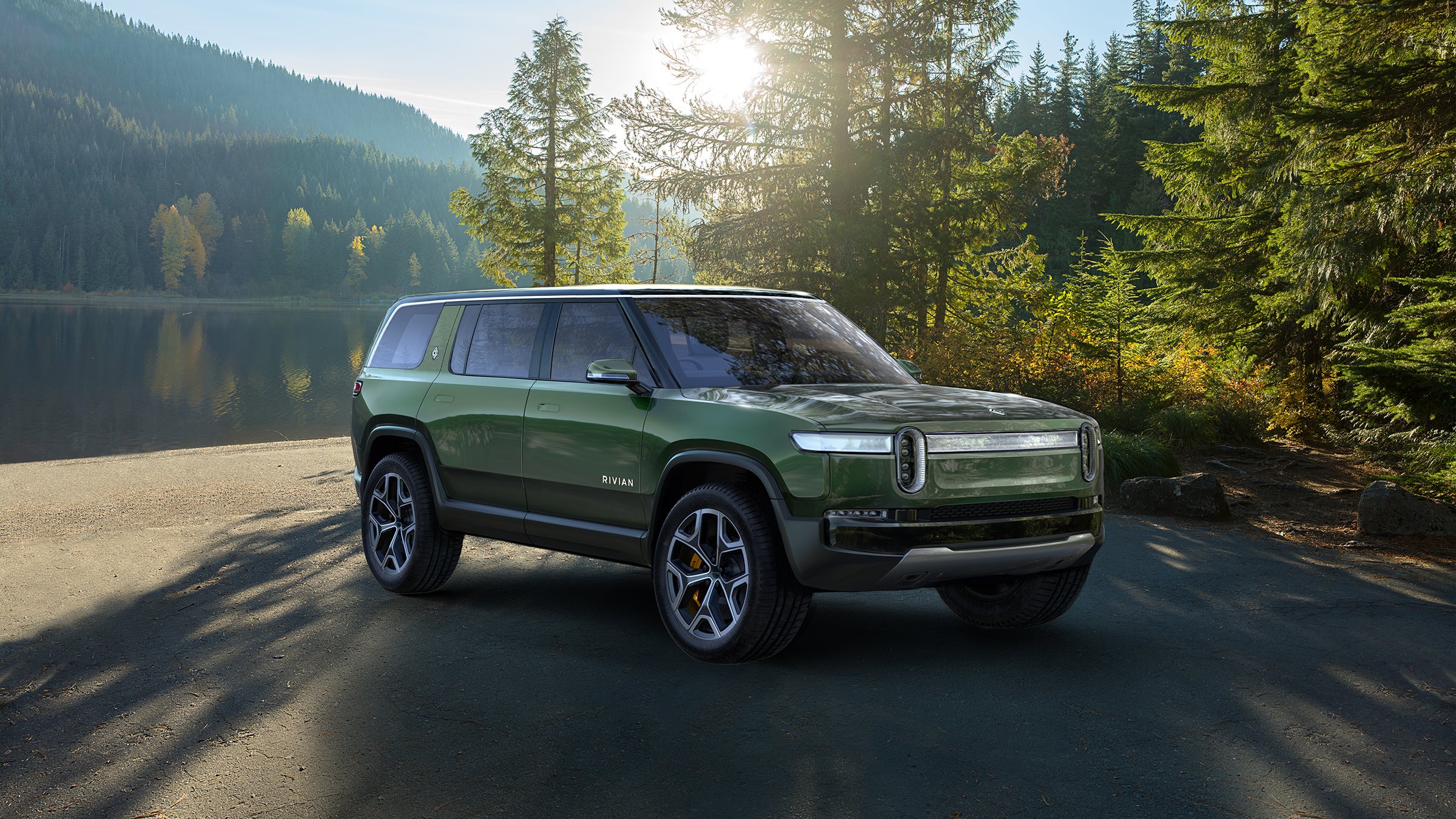Welcome to What You Missed, our daily digest of breaking news and topical perspectives from across the outdoor world. You can also get this news delivered to your email inbox six days a week by for the What You Missed newsletter.
Rivian is on Wall Street today.
On Wednesday the California-based electric-vehicle manufacturer made its debut on the Nasdaq stock exchange in what’s believed to be one of the biggest IPOs of 2021. The company’s securities filing from Tuesday listed the share price at $78, placing its value at nearly $70 billion, a sum in the same general ballpark as Ford Motor Company and General Motors.
When trading opened to $106.75, boosting Rivian’s valuation to $90 billion. The rise in share price .
Investor confidence in Rivian by financial backing from Ford and Amazon—the latter has already invested $1.2 billion and 100,000 of Rivian’s new electric vans.
Rivian made waves in 2018 when it unveiled its line of electric pickup trucks and SUVs, and the company’s target consumer is outdoor enthusiasts. Some of its vehicles feature enhancements designed for skiing, camping, and other outdoor activities. Such a ride isn’t cheap, with retail pricing on its pickup truck starting at $69,000.
Rivian’s R1T pickup in September. The company has since delivered only 156 of its electric pickup trucks to buyers but is hoping to fulfill orders for 55,400 vehicles by the end of 2023.
Like Tesla, Rivian has yet to turn a profit, despite its enormous valuation. According to , Rivian has operated at a net loss of nearly $1 billion through the first six months of 2021. According to the , revenues in the third quarter of 2021 are expected to range from zero to $1 million.
The key to the company’s success will likely hinge on its ability to scale production facilities and methods to meet demand—no easy task.
So why all the hype for a company that faces such stark challenges? earlier this year caught the attention of Wall Street investors, who now appear eager to back electric-vehicle technology. Investors also appear confident in Rivian’s founder, , an engineer who has a PhD from the Massachusetts Institute of Technology. And Wall Street firms are eager to back companies like Rivian, even if there’s a about the true environmental impact of electric cars.
Long story short—investors think Rivian is for real. So keep an eye on the parking lot at your favorite trailhead or ski resort. You’re likely to spot a Rivian or two in the coming years.
Scammers in the Metaverse
Warning: that Facebook ad for steeply discounted Cotopaxi gear is probably a scam.
Utah-based Cotopaxi is the latest outdoor company to battle with online scammers claiming to sell steeply discounted products. In recent months Facebook has hosted an advertisement titled, “Cotopaxi: Everything Must Go” purporting to sell the company’s products at steep discounts. On November 7 Cotopaxi’s founder and CEO Davis Smith saying his company has been bombarded by inquiries about the false advertisements, and that the company has notified Facebook about the scams on multiple occasions.
“While we have seen some links/ads shut down, many fraudulent listings/ads persist after days,” Smith wrote. “We—as many other amazing brands—have worked relentlessly to be good, honest, and ethical global citizens in our communication but we need better, faster support from Facebook/Meta (as well as payment gateways, registrars and CRM providers) to protect innocent consumers from being defrauded!”
There’s a long history of scams in the outdoor industry, and being targeted by fraudsters seems to be a rite of passage for successful brands. For years bike companies counterfeit products being made overseas. In 2020 eyewear brand Pit Viper became the focus of online counterfeiters, prompting the company to notifying customers. Apparel brand Patagonia multiple scam websites that claim to sell its products at steep discounts.
Don’t feel bad if you click on these ads (this reporter admittedly did so), but don’t give them your credit card info. And remember: if a deal seems too good to be true, it probably is.
Allez! Allez!
Hot take: The Tour de France should reinstate midrace stops for beer and champagne. Back in 1962, riders sometimes stopped at cafes to fill up on coffee, water, and yes, alcohol.
Mille et une façons de vaincre la chaleur sur la route du Tour (1962).
— David Guénel (@davidguenel)
Member Exclusive
“Gifts to Make Air Travel Easier” Here are ten items to improve your next flight. ���ϳԹ���
Around the ���ϳԹ��� Network
“The Last Aspen Ski Bums Are About to Get Evicted” In an excerpt from her new book Powder Days, author Heather Hansman examines how skyrocketing housing costs are reshaping ski towns. ���ϳԹ���
“” Coach Zach Nehr explains the performance benefits you can get from weight training. VeloNews
“” Contributing editors pick the hikes that deliver the most bang for each boot step. Backpacker
“” Supply–chain issues are likely to blame for the outdoor industry’s economic downslide in 2020. ���ϳԹ��� Business Journal


